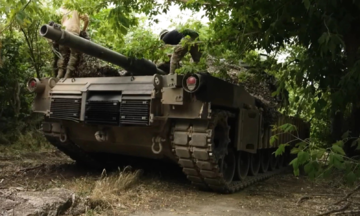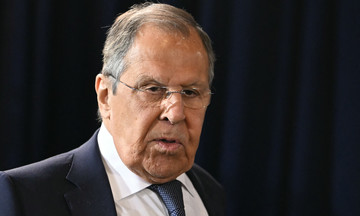On 6/8, a spokesperson for the Spanish Ministry of Defense announced that the government is "no longer considering" the purchase of US-made F-35 stealth fighters. Instead, Spain will weigh options between the Eurofighter Typhoon, a product of a European consortium, and the Future Combat Air System (FCAS), currently under development by several European powers.
While Spanish officials haven't provided specific reasons, military experts point to several factors behind the decision.
A primary concern is the F-35's high acquisition and operating costs. Each F-35 costs between $80 million and $100 million, depending on the variant, excluding weapons, spare parts, operation, and maintenance.
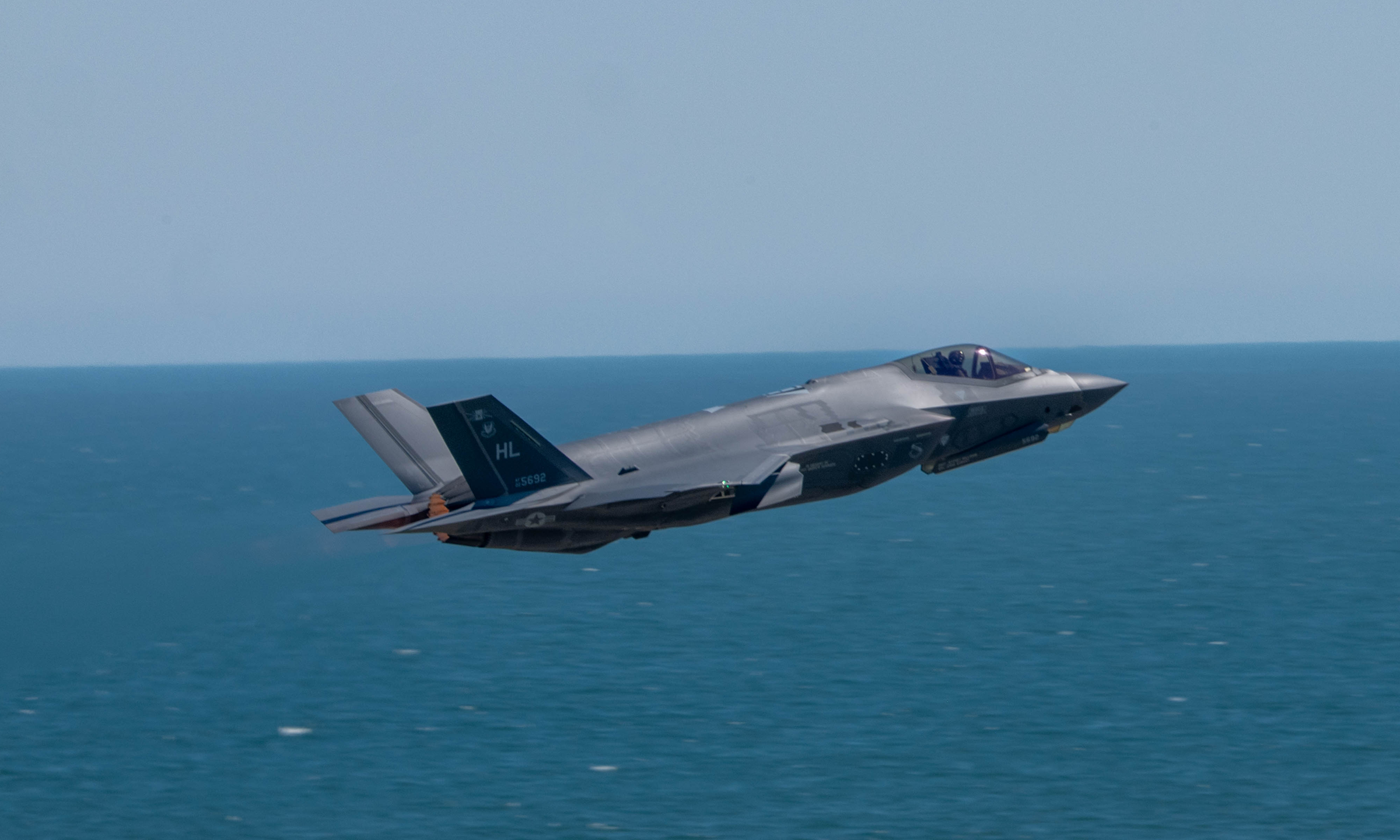 |
A US F-35 fighter takes off from Matsushima Air Base in Japan on 25/7. Photo: US Air Force |
A US F-35 fighter takes off from Matsushima Air Base in Japan on 25/7. Photo: US Air Force
The Spanish government allocated USD 7.2 billion in its 2023 budget for new fighters. However, this year's military spending plan makes the F-35 purchase infeasible. Pursuing European platforms like the Eurofighter and FCAS is seen as more aligned with long-term spending goals.
Prime Minister Pedro Sanchez has committed to increasing defense spending to 2% of GDP by 2025, fulfilling a NATO requirement, but has resisted US pressure to raise it to 5%. This suggests Spain is prioritizing a budget reallocation focused on more affordable defense programs that support its domestic industry.
According to El Pais, canceling the F-35 order is part of Spain's strategy to allocate 85% of its defense budget to European projects, optimizing financial resources.
"The F-35 is an expensive platform, not just in terms of acquisition but also maintenance and logistics," noted Niccolo Petrelli, a defense expert in Italy. "For countries like Spain, investing in European programs like FCAS not only saves money but also fosters long-term industrial growth."
Prioritizing the Eurofighter and FCAS also reflects Spain's desire to reduce its dependence on the US.
FCAS, a joint project between France, Germany, and Spain, is designed to replace 4++ generation fighters like the Typhoon, Rafale, and F/A-18 Hornet, with a target in-service date of 2040. The program encompasses not just fighters, but also integrates unmanned systems, satellites, and cruise missiles, creating a "comprehensive combat ecosystem."
This indicates Spain is prioritizing European platforms to ensure strategic independence, particularly given past tensions with the US under President Donald Trump. Trump criticized Sanchez for resisting increased defense spending and threatened tariffs on Spanish imports.
"Spain, like several other European countries, abandoning the F-35 ambition is a clear signal they are seeking to lessen their reliance on US technology, especially as NATO allies are concerned about autonomy in operations," observed David Cenciotti, an Italian military aviation expert.
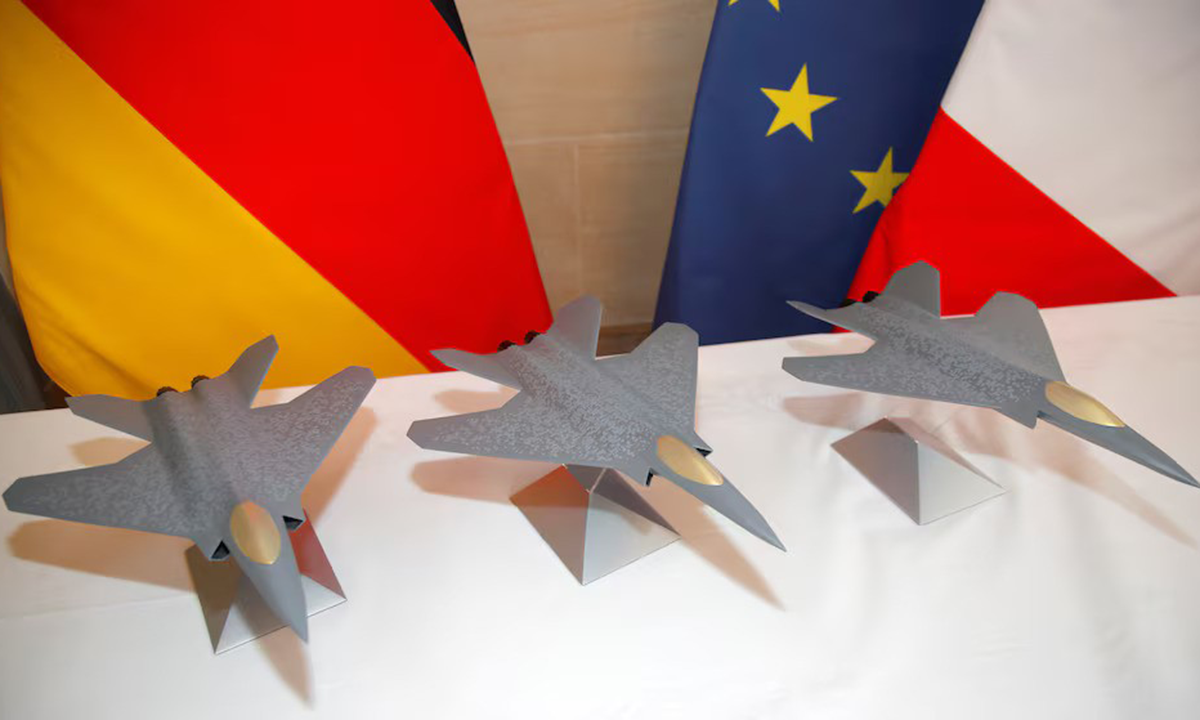 |
A scale model of the FCAS fighter on display in Paris, France, in 2020. Photo: Reuters |
A scale model of the FCAS fighter on display in Paris, France, in 2020. Photo: Reuters
Another key reason is the desire to boost the European defense industry.
According to El Pais, the F-35 cancellation prioritizes investment in European industrial projects, which generate economic benefits and jobs within the region. Spain is currently pursuing the Halcon I and Halcon II programs, worth a combined USD 7 billion, to acquire 45 additional Eurofighter Typhoons.
FCAS, launched in 2018, symbolizes Europe's ambition to develop a 6th-generation combat platform, directly competing with US and Russian programs.
The project has not only military significance but also fosters industrial cooperation among member states, with participation from aerospace corporations Airbus and Dassault.
"Promoting FCAS and Eurofighter is not just about technology, but also about Europe building an independent defense base, reducing dependence on the US supply chain," stated Joachim Schranzhofer, communications director for German arms manufacturer Hensoldt.
Concerns about technical dependence and potential US remote interference with the F-35 also appear to be factors. Some US allies, including Canada and Portugal, abandoned multi-billion dollar plans to purchase F-35s following concerns about a potential "kill switch" allowing the US to remotely disable the aircraft.
Even without a "kill switch," European militaries rely heavily on the US for spare parts, software updates, and technical support. This allows Washington to exert pressure, even hindering allies' operation and deployment of the aircraft.
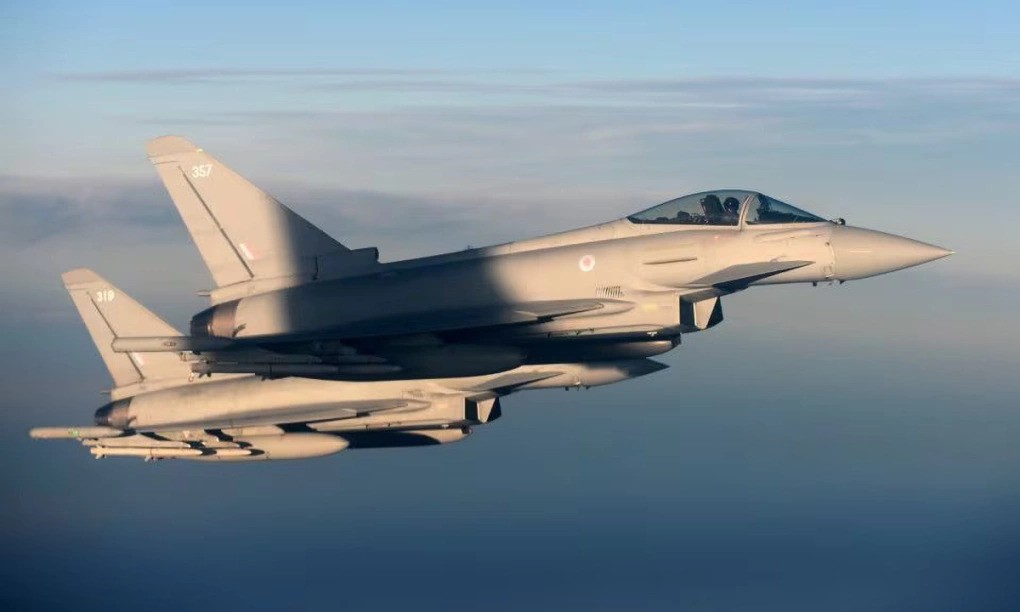 |
A Eurofighter Typhoon performs a flight demonstration in the UK in January 2020. Photo: Reuters |
A Eurofighter Typhoon performs a flight demonstration in the UK in January 2020. Photo: Reuters
"The F-35 is such a complex system that dependence on the US is unavoidable. Countries like Spain, which prioritize defense sovereignty, will seek less risky options," commented Tyler Rogoway, editor of the US military website War Zone.
The F-35 cancellation will significantly impact the Spanish Navy, especially with the light aircraft carrier Juan Carlos I and AV-8B Harrier jump jets currently in service.
"The F-35B, the short-takeoff and vertical-landing variant, was the only viable replacement for the Harrier, which is scheduled for retirement in 2030. Canceling the F-35B purchase may leave the Juan Carlos I operating only helicopters, significantly reducing Spain's maritime combat capabilities," warned Greg Ulmer, former vice president of Lockheed Martin.
Phong Lam (War Zone, Reuters, Defense News)








